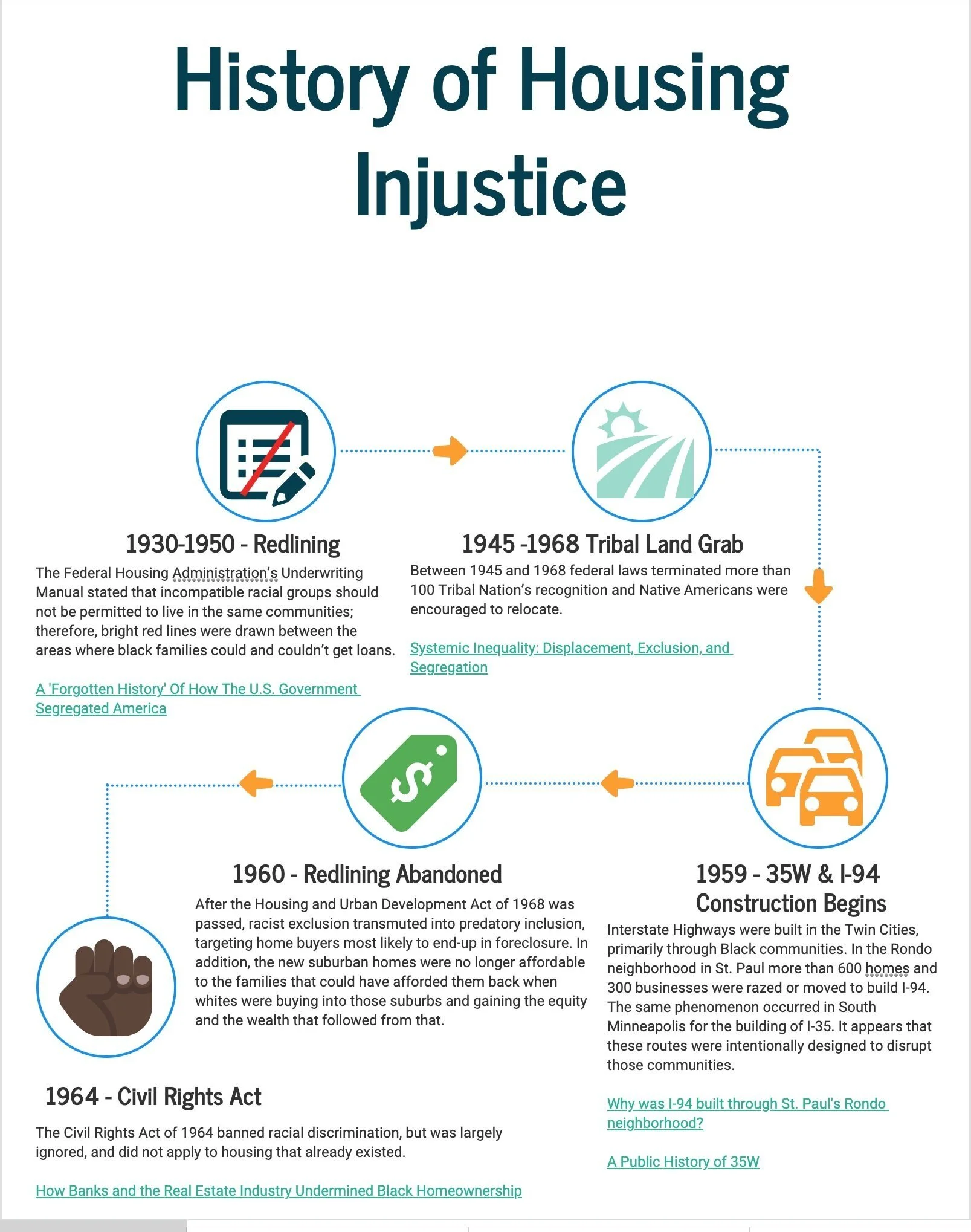Align Minneapolis honors all persons of color whose inestimable contributions have served to further the advancement of humanity. We also uphold all persons of color who in their everyday ordinary lives are striving to make a better life for themselves and their loved ones, whether they be housed or unhoused. The contribution of both groups is even more noteworthy when we consider the context of racial discrimination that they endured, and the legacies of the oppressive and unjust systems that persist today.
Here we briefly chronicle the unjust and discriminatory housing policies and practices that BIPOC Minnesotans encountered over the last 90 years. These historical policies and practices typified by denial of access and opportunities, the destruction of neighborhoods, unfair pay, unfavorable financing and mortgage policies – all combined to prevent BIPOC wealth accumulation, equity appreciation, and intergenerational transfer. Today African American incomes on average are about 60 percent of average white incomes. But African American wealth is about 5 percent of white wealth. (Rothstein: The Color of Law) The result is abiding and unjust disparities between people of color and those without, that characterizes life in America today, especially in Minnesota.
In housing this means:
The typical black worker draws a salary roughly one-quarter smaller than an average white employee. (Southern California News Group, 2020)
79 % of Align’s Emergency Rental Assistance applicants who are black sometimes pay up to 80% of their income to keep an apartment, while working several jobs.
Black home buyers pay higher interest rates on mortgages and are rejected more times than their white and Asian counterparts. (Pew Research, 2015)
In 2020, 44% of black households own their homes versus 73% percent of white households.
Align Mpls congregations with direct service ministries serve many persons who yearn for a roof over their heads - a place to call their own. As we support them, we learn about the systemic forces that unfortunately play a role in their unhoused condition. This historical timeline helps us to identify and understand these systemic forces and shapes our actions to address the racial inequities in our housing sector.
Resolve to become a part of the solution; click the link to learn more.

